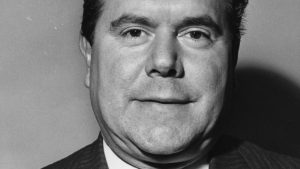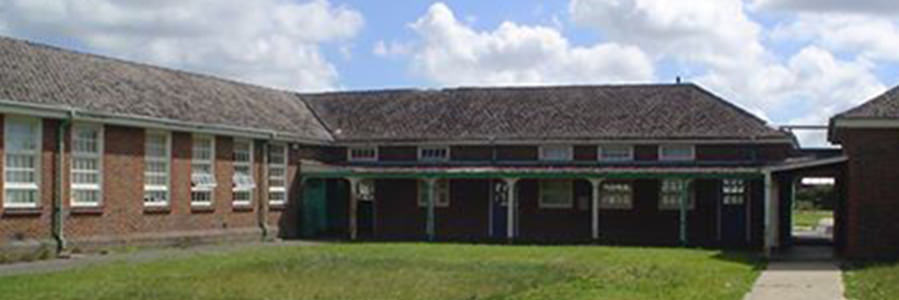Reprinted from The Times of London 27 December, 2016
Dudley Smith was an enthusiastic Thatcherite until in May 1990 he dared to express dissatisfaction by using a football analogy: “Do you sack the manager or don’t you? You may have a good manager but what if the team isn’t scoring goals?” Six months later Margaret Thatcher was out of office. One reason for his dissatisfaction was the poll tax, which he regarded, no doubt, as an own goal by the Conservative Party.
Such an outbreak of “wetness” was rare for Smith, who was once described as a “tough, beknighted loyalist who does some occasional shin kicking”. He was for hanging, against homosexual law reform and believed that life imprisonment should mean at least 25 years. He supported curbs on abortion, voted against allowing immigrant women with British citizenship to bring in their husbands or fiancés and, despite an early career in newspapers, called for The Guardian to be prosecuted after it quoted from Lady Chatterley’s Lover during the obscenity trial in 1960.
He was elected MP for Warwick and Leamington Spa in 1968 with a majority of nearly 22,000. With 14,000 Sikhs in Leamington Spa, mostly in the car-components industry, immigration was one of Smith’s interests. Fairness and rights were important, he said, but he was against “opening the doors and letting in large numbers of people”.

In views that seem prescient today, he warned as early as 1996 that, in his view, the European Union was becoming too federalist. “The $64,000 question is how we deal with the predatory attitude of the EU as it tries to take over defence?” he asked in an interview with Jane’s Defence Weekly. “We’re not against the EU, but it doesn’t have to run everything.”
Dudley Gordon Smith was born in Cambridge, the son of Hugh and Florence (née Markwell). His father was a manager of small businesses and the family soon moved south to West Sussex, where Smith was educated at Chichester High School, which he left at 16. He always wanted to be an MP but looking at his chances, he calculated that the most promising avenues were through money (he had none), the law (he had little chance of qualifying) and journalism. He entered newspapers with enthusiasm.
He joined the Portsmouth Evening News in 1945, in time to have his first taste of an election. He went to Fleet Street for The News of the World and then the Sunday Express, reporting, writing features and sub-editing under the editor Sir John Junor. The policies and prejudices he took to the Commons and, indeed, some of the phrases in his speeches might have come from Junor’s weekly columns.
Burly, curly-haired, handsome and a keen amateur boxer, Smith was a natural for the Young Conservatives of his day. He was the youngest member of Middlesex county council, then the second largest local authority in the country. He fought the hopeless Peckham seat in 1955, where he reduced the Labour majority by 5,700, a feat that helped him to gain the nomination for Brentford and Chiswick in 1959. He won the seat narrowly first time, held it in 1964 and lost it in 1966. During this first period in office he was a Thatcher admirer, using his experience as a journalist to speak in favour of her Public Bodies (Admission of Press) Bill in 1960, her first Commons success, and raising the question in the Commons of whether it was permissible for the word f*** to be used in newspapers.
He asked whether **** could be used in newspapers
When he took Warwick and Leamington in 1968 he was told that the seat was his for life. After the 1970 election, Edward Heath made him a junior minister, first at employment and then at defence. While this was good politically it was disastrous financially because he had to relinquish his many outside engagements. Mrs Thatcher provided the ideal solution: he left government and in 1979 she put him on to the British delegation to the Council of Europe and the Western European Union. Over the years his business interests grew so significantly that at times he seemed to be the voice of the big drug companies in the Commons. When the first register of MPs’ outside interests was published in 1995 he was the third-highest earner on it, with contracts worth £55,000.
Meanwhile, in 1958 he had married Anthea Higgins, a beauty consultant. They had a son, Russell, and two daughters, Charlotte and Antonia. In 1973 he attracted lurid “love triangle” headlines when his wife became involved with Tim Fortescue, the Tory MP for Liverpool Garston (they later married). In 1976 Smith married Catherine Amos, a management consultant. That marriage was dissolved in 2011.
There was more unwelcome publicity in 1995 when he tried to sell his holiday home in northern Cyprus. Evangelos Hatzezorze, 85, who had been driven out after the Turkish invasion, claimed the property was rightfully his. Smith, a member of the Parliamentary Friends of Northern Cyprus, stood his ground, however.
Far more calamitous was losing his parliamentary seat, which he had hoped to keep for longer than Anthony Eden’s record of 34 years there. But in the general election of 1997, a swing to Labour meant he was swept away by 3,398 votes. Smith now discovered the voters of Warwick and Leamington had decided that it was time to sack their manager.
Sir Dudley Smith, former Conservative MP, was born on November 14, 1926. He died on December 14, 2016, aged 90

